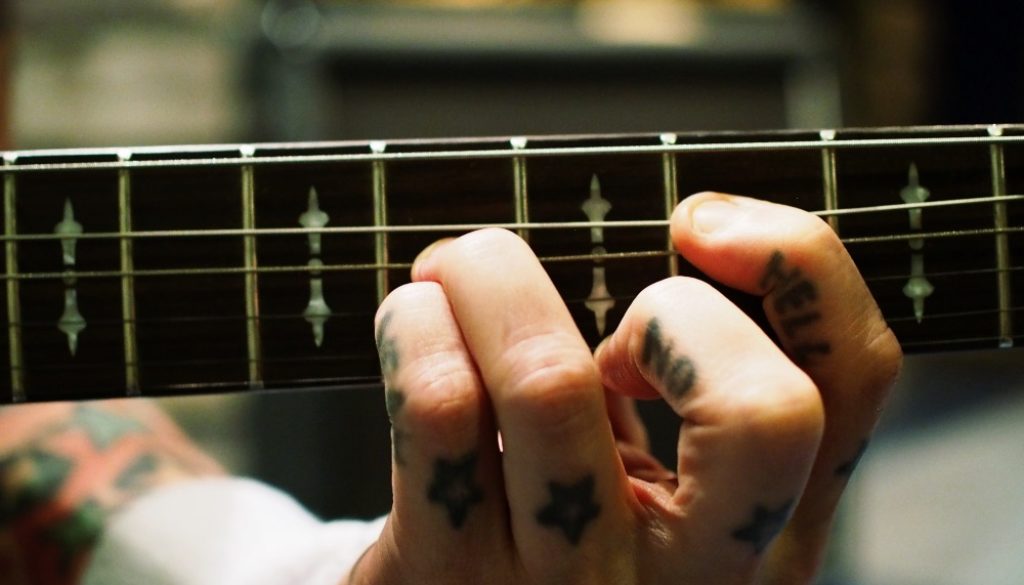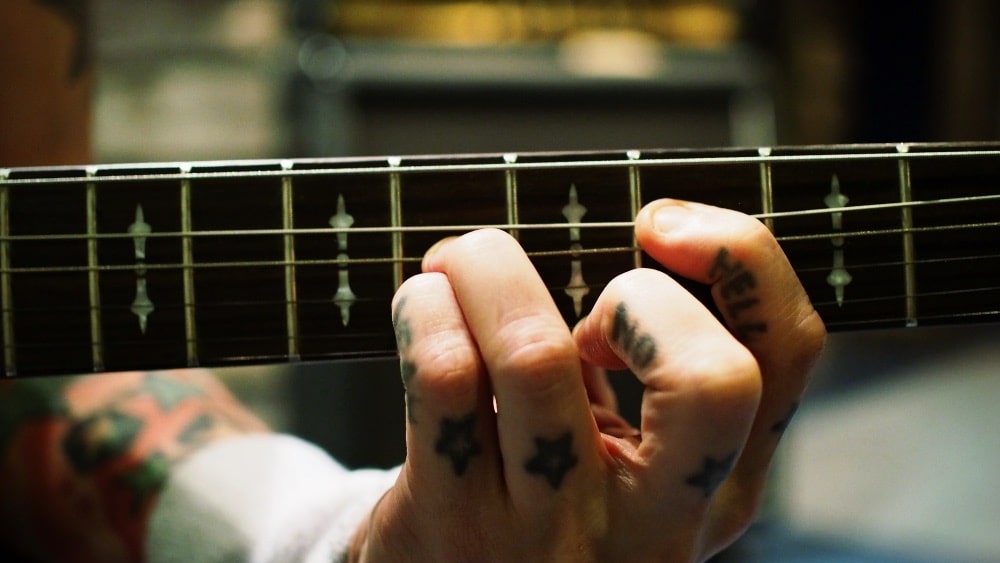Improve The Tuning Of Your Guitar, pt 5 – Do You Press The Strings Too Hard?
As a guitarist you surely must know how hard tuning a guitar can get. Sometimes you may press the strings too hard it can cause annoying detune. With this series I hope to help you with tuning-related issues, as I share my studio and live experience from the past quarter of a century. So let’s improve the tuning of your guitar, part 5 – Do you press the strings too hard?
Guitarists, bass players and recording engineers will benefit from reading this blog post. You will learn how much pressing the strings will affect the chord intonation.
Improve The Tuning Of Your Guitar, pt 5
– Do You Press The Strings Too Hard?
In the first part of this series you learnt how using tuners from different manufacturers may result in detune. If you haven’t read it yet, please click the link below:
Improve The Tuning Of Your Guitar, pt 1 – The Tuner May Cause Issues
The second part explained how much the plucking level affects both the pitch and tuning. Please read it before continuing by clicking this link:
Improve The Tuning Of Your Guitar, pt 2 – How To Pluck The Strings When Tuning
In the highly important third part you learnt how to fine-tune your guitar and not to trust the tuner only. If you haven’t read my Precision Tuning Tip yet, please click the link below:
Improve The Tuning Of Your Guitar, pt 3 – Precision Tuning Tip
The fourth part helped you with easy steps on how to tune the G string correctly. You should read it by clicking the link below:
Improve The Tuning Of Your Guitar, pt 4 – How To Tame That Darn G String
This time we’ll inspect why some notes and chords still sound detuned, even though the instrument’s settings and tuning are done right. We’ll start with the assumption that both the truss rod and intonation are correct and not the ones to blame.
When chords won’t intonate right
Sometimes you can get rid of detune using the method described in The Coolest Tuning Tip Ever pt. 1 blog post. It shows you how to remove the dead skin cells from underneath the strings that can affect the intonation. Yet, there are situations where such awesome tips don’t help and we’ll have to search for the culprit elsewhere.
I remember several sessions where I’d tuned the guitar to an excellent tuning. Still, once the guitar player started playing the detune managed to ruin a great take. And to my surprise when I re-checked the tuning using Precision Tuning Tip, the intonation was spot on.
It was when I asked the guitarist to check each note of the chord separately using a tuner, it finally dawned on me. The detune was caused by the guitarist pressing the strings too hard! If you press each string with equal power, the intonation is as it should. But when you press some strings even a tiny bit too hard, the chords can intonate bad.
Pressing the strings – Do not use too much force
If you press the strings too hard, it can cause detune, yet sometimes using a thicker string set can help. Please do note that when changing to a different gauge strings you should always check both the truss rod and intonation of your instrument. You don’t necessarily need to make changes every single time, still it’s better to be safe than sorry.
On several sessions the culprit that was causing detune turned out to be the guitarist’s fingers that press the strings. You can easily make a test using a tuner. Press the 2nd fret from G string and pluck the string gently. Thn put more pressure on the finger that’s pressing the 2nd fret and observer what the tuner says. And then again you will hear the difference in pitch also by listening. Especially with thin strings and hard pressure the pitch can sometimes go up more than half a step!
Thicker strings are less immune to this. If you use a thinner set you need to be even more cautious on how hard you press the strings. Especially when you play chords using multiple strings, even a slight difference in pressing can make the intonation worse. In addition, you should avoid the bending of the strings shown in the first photo when playing chords. Bending that hard is a great way to be out of tune.
Not only the guitar but also the bass
I’ve met not only guitarists but also bass players who get so excited and carried away by playing, that they in the middle of the song start pressing the strings really hard. This usually causes extra harm when you start recording the next instrument. Pressing the strings as evenly as possible helps to reduce the problem.
A couple of times I’ve bumped into a situation where a guitarist has no other option but to go literally back to square one. They’ve had to re-learn their playing technique. Even though that’s not something you’d enjoy, there still is a very positive side to it as this will help to get rid of the weaknesses and makes the technique solid. At some point pressing the strings too hard will cause problems and the sooner you fix it the better.
When you press the strings too hard
When you press the strings too hard it can make the chord intonation off. In my previous post I told you about Alexi Laiho and his aggressive picking. When he palm muted the open low E string the pitch raised over half a step. He was hitting the string so hard that the intonation was way off.
In this post we’ll concentrate on the pressure of the non-pick-holding, but the other one that’s pressing the strings. By that I mean the fingers that you use when taking the chords. The fix is anything but fast and easy. Still it’s definitely worth the effort as by focusing on the pressure you use to press the strings, you’ll reduce the possibility for detune. And this takes you one more step closer to the awesome-sounding intonation.
Once you have enough mileage with decades of constant playing, you can even learn to fix a string which is low in pitch on the fly. I’ve had the pleasure of witnessing several times how a professional guitarist does that live on stage without the audience noticing any problem. He’ll simply push that string a tiny bit more than the others to compensate.
You too can learn such a skill if you are ready to sacrifice enough time and effort to it.
Learn to press each string with equal pressure
Do your best to avoid pressing the strings too hard. Usually this too is evened out after years of playing. Still, as it is with all such issues, you first need to spot it and only then you can successfully start fixing it.
Thank you for reading my tip on how to improve the tuning of your guitar. If this post was helpful, please share it on social media. This way you will help your friends to benefit from the information shared here.
Hear your music in great detail by recording it on tape with me at Astia-studio. Reserve a session by clicking here and let’s continue from there. Thank you very much and all the very best!
Read more of my guitar-related blog posts:
- How To Improve Guitar Sound pt. 1
- The Coolest Tuning Tip Ever pt. 1
- Avoid This Common Mistake When Recording Guitar
Astia-studio is a full analog recording studio located in eastern Finland with 25 years of experience. Bands and artists from all over the world including USA and the furthest corner of Russia, Vladivostok have arrived to us for tape recording sessions.






